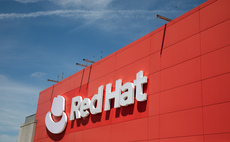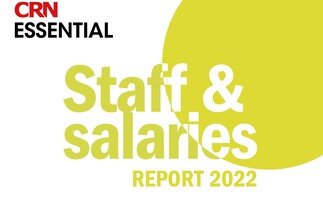These are challenging times for local cloud service providers, due to a whole variety of pressures on the market. The hyperscale cloud providers have an enormous variety of services on offer to customers, in many datacentre regions around the world, and have the purchasing power to offer them at a fraction of the price. For local service providers who don't have this scale, feature differentiation, or purchasing power, it means there is a very real risk of losing customers.
To adapt, service providers are focusing on where they can add value. One example of this is offering highly personalised services and support. Another is going up the stack, offering specialised services beyond the compute, storage and network of their existing platform. Cloud and service providers are faced with the ultimatum that to continue to thrive in a market with the hyperscalers, they must continue to innovate.
What trends should service providers look out for?
Investments in security messages, and local datacentre , mean that previous inhibitors to hyperscale public cloud adoption are becoming less common. We have seen financial services and the public sector move very sensitive workloads to the public cloud, which would not have been possible just a few years ago. This presents a multicloud and hybrid cloud opportunity for increasing service provider revenue, but at the same time presents a risk if service providers focus too heavily on traditional and commoditised services.
One particular way to leverage this opportunity is investment in people, and significantly addressing the skills gap that exists in the marketplace. Being able not just to offer new services, but best practices, skills, and training around how customers might best adopt and use those services, means that cloud and service providers will build sustainable, strategic connections to their customers.
What do service providers need to do to realise the cloud opportunity?
Cloud is a term that has been used and misused in our industry for some time. From one view, you could consider every managed service provider as offering a form of cloud.
We see IaaS, PaaS and SaaS as an opportunity, although the majority of local cloud and service providers are too focussed on the infrastructure space to see the opportunity that exists in the PaaS and SaaS space today. This is especially true of SaaS, where there is an increasing demand to consume software, without the hassle of running the infrastructure. Many cloud and service providers operate on a "provide a sandbox and the customer will build something" model - but there is opportunity for the cloud and service providers to fill that capacity with higher value services.
From a commercial model perspective we have seen the hyperscale cloud providers adopt per second, even per millisecond or per transaction cost models. Implementing these commercial models for a local cloud provider presents huge technical and financial challenges. However, those cloud providers who are able to provide the right technical solutions, can still retain customers, and grow them. This leaves cloud providers with the challenge to move away from long, yearly contracts, and evolve their commercial models to meet customers in the middle - at least closer to their expectations of a pay-as-you-go hyperscale-like experience.
How is Red Hat helping service providers in their mission to serve enterprises?
Red Hat is working with cloud and service providers who are looking to build competitive differentiation to retain and grow their customer base in this challenging market. The Red Hat portfolio offers an open, hybrid alternative to the services offered by the hyperscalers. Our portfolio of technologies allows cloud and service providers to reduce operational costs compared to traditional, commoditised platforms.
The Red Hat EMEA Certified Cloud and Service Provider (CCSP) program provides a commercial model that is well aligned to cloud and service provider market expectations, with hourly, monthly, and yearly subscription models. By partnering with Red Hat, partners are able to de-risk the build of new IaaS, PaaS and SaaS services, through support, training, and marketing.
Ultimately, a partnership with Red Hat helps cloud and service provider partners protect their revenue streams from market risks, and grow new revenue streams, all with an open and hybrid approach.
Colin Fisher is Director, Cloud Providers, EMEA, at Red Hat.
Red Hat have partnered with CRN to produce a research report covering how enterprises are approaching cloud and multi-cloud.













